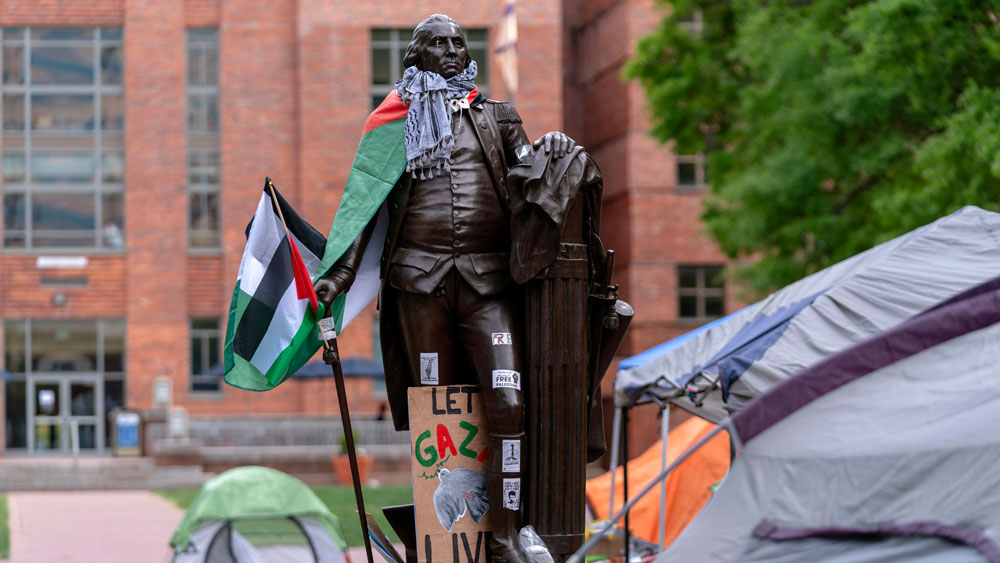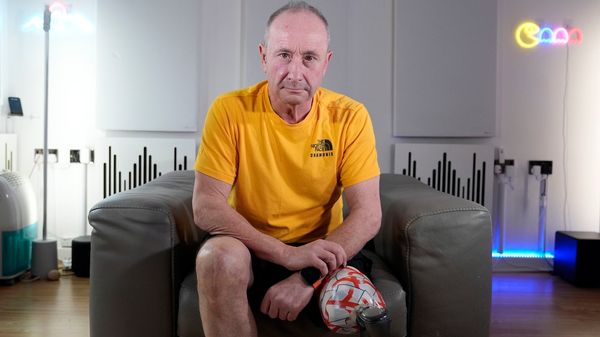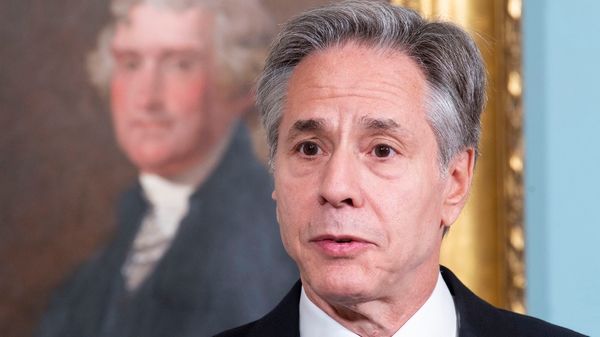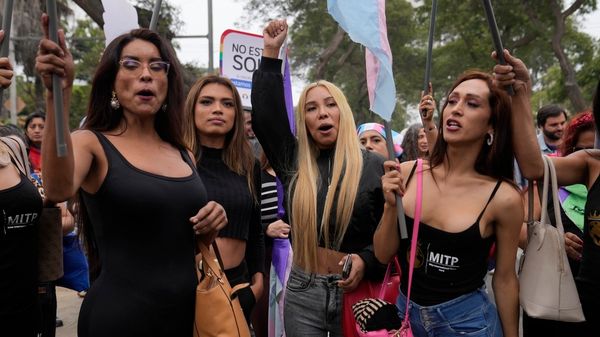February 13, 2015
Friends & Family Remember Matthew Shepard in New Doc
Frank J. Avella READ TIME: 10 MIN.
"Where would we be with the equality movement and the gay community if Matt hadn't died? Would we be this far?" Dennis Shepard wonders. After a thoughtful bittersweet pause he concludes, "We wouldn't even be close."
How profoundly sad that in order to affect real change and forward the gay civil rights movement, a bright, kind, promising young man had to lose his life in a tragedy that took its highest toll on the family and friends he left behind.
Since the heinous murder of Wyoming-born Matthew Shepard back in October of 1998, he has become a symbol of most LGBT rights' battles including hate crime legislation, the fight for marriage equality and bullying laws.
And while Matthew is a forever-iconic figure and what happened to him the stuff of harsh-but-real legend, he has loved ones that wanted people to remember that Matt was also a human being. One close friend in particular, Michele Josue, decided to create a filmic memorial of sorts, an intelligent, deeply moving documentary, Matt Shepard Is a Friend of Mine, that has played numerous festivals and is being given a slow distribution roll-out over these next few month (including NYC where it opened earlier this month. For further information about screenings, visit the film's website.
A promise fulfilled
The idea has been gestating with Josue since the gruesome events took place. "I was witnessing, on the news, Matt becoming something else," she explains, "I found it surreal and heartbreaking because the world was only getting to know Matt as this victim whose identity was just linked to horrific violence and pain. And if you knew Matt, he was so loving and big hearted. It was a confusing thing to witness. So, as a friend and growing filmmaker, I made a promise to myself 16 years ago that when I was ready and when all of his close friends were ready we would create something to memorialize him and what he meant to us."
That is exactly what Josue has done with her contemplative, affecting new film.
To begin the process, Josue decided to chronologically move through Matt's life "from his childhood to adolescence and then college, his death and the aftermath" and speak with those she felt knew him best--two key figures being his tireless parents, Judy and Dennis.
Judy has become a crusader for LGBT rights (taking up the torch from where she felt her son had left it) and wrote a book titled, "The Meaning of Matthew," in 2009. "That gave us permission to remember the things about Matt that really annoyed us as much as the things that we loved and that made him even more human to us," Judy says. "So it was important for us for Michele to tell that part of the story. Things that were little and fun and unique to Matt and us...what he was like as a young person."
'Monstrous" amount of footage
The filmmaker shot over 100 hours of footage (including new interviews) and the Shepards allowed her access to many hours of private home videos of Matt. Josue says of the "monstrous" amount of footage: "Matt's story has inspired a lot of amazing advocates and changed all of us so if the film could be 5 hours-10 hours long, I could explore more and really show how people have changed in experiencing what happened to him."
Alas, it was all edited (by Josue) into a concise yet potent 90-minute film (currently at 100% on Rotten Tomatoes).
Essential to the film's success would be Judy and Dennis' participation, meaning they would have to relive a lot of the good but so much of the devastating elements in the life and death of their beloved son. Both Dennis and Judy are very striking figures, admirable and honest. Dennis, a warm, gregarious and charming man, makes no bones about his thoughts and feelings, while Judy is more reserved, introverted. She's been hurt too often by the media and has learned to temper what she says. But once she opens up, she's Everymom.
Sixteen years ago they (along with their son Logan) made an extraordinary decision, while Matthew was still in the hospital fighting for his life, the kind of decision most families would not have had the courage to follow through with. "We knew it was getting a lot of press," Judy states. "As an accepting family we hoped we could persuade other families to accept their children. If they could see us and how much we loved and cared about Matt, then they shouldn't throw away their children while they still had they're children. That would just be criminal."
Still doing it
The Shepards became synonymous with gay tolerance. That paved the road to gay acceptance, which led to embracing diversity. "We didn't think 16 years later, we'd still be doing it," she added.
Shortly after the death of their son, they established the Matthew Shepard Foundation, which has been responsible for extraordinary efforts on behalf of LGBT people and, in particular, teens struggling with their sexuality.
In the movie, Judy says, "I really think people who love their family and friends know that they're gay." She elaborates, "I intuited that Matt was gay when he was about 8. I don't think he knew it at the time. One of the things about the film that really shocked us is that we didn't know he was hesitant to come out to us. We were totally unaware of that."
When Matt did come out to Judy he asked her not to tell his father. But Judy did, which prepared Dennis, helping him react in the most positive of ways, despite his own struggle. "Because I had come from a very hard drinking, hard working family-construction, oil field, farming and we just never thought about it," Dennis expounds. "I was disappointed because I wanted grandkids." But he soon realized, "I could still have grandkids." And he realized he had his son. And that was what mattered. "So it was no big deal."
Born in Casper, Wyoming, Matt would travel extensively because of his father's work in Saudi Arabia, attending high school in Switzerland (where he met Michele and other friends who appear in the film). Matt lived in Denver, Colorado for a spell but eventually returned to his hometown in Wyoming. (A state that has yet to adopt any hate crime law despite what happened to Matthew Shepard.)
The film sheds light on some of Matthew's ambitions, hopes and dreams but also delves into the more difficult and damaging moments in his life including his being physically and sexually assaulted by a group of six men during a school sponsored trip to Morocco. The incident forced the once adventurous and enthusiastic boy to retreat into himself. But that began to change when he returned home. "In Laramie, we felt he was really finding himself again," Judy notes. "You could tell the difference. He just opened up. He wasn't so tense," Dennis offers.
Unfortunately, Matt's fate was sealed by the rage of two young men, Aaron McKinney and Russell Henderson, who offered Matt a ride home from a bar in Laramie on October 6, 1998, only to beat him senselessly and leave him for dead, tied to fence.
Director Josue makes the deliberate choice of having Judy narrate the segment of the film that explicitly details the repeated blows to the head that would eventually kill her son. "I wanted it to be personal, intimate. No one can speak to the horror and tragedy of what happened better than Judy," Josue explains. Dennis then recounts how Judy had to sit in the courtroom listening to the grisly autopsy details and was ordered to "not show any emotion, because it could influence the jury and they (the attorneys for the accused) could come back on appeal that she influenced the jury unfairly. So she had to sit there with a straight face."
Invasion of privacy
Mechanically programming yourself is something Judy Shepard learned to do early on at her own son's funeral when protesters (the Westboro Baptist Church "God Hates Fags" folk), counter-protesters, swat teams and bomb sniffing dogs crashed her family's private day of mourning. The film exposes the invasive nature of the press. Judy realized they weren't there for Matt but for the story and to capture their bereavement on film. "If it bleeds, it leads," she concluded, giving them what they came for.
Dennis feels that the fanatics from the Westboro Baptist Church actually helped the gay movement. "Their hate was so mean spirited that they made people question why are they doing something so crazy. That helped raise support for gay (causes.)"
Arguably, the heart of the doc is a searing, honest moment Josue had with a priest. Although we hear her voice on the soundtrack, up to this point in the feature, Josue is little seen. But this specifically raw and vulnerable segment has her trying to come to terms with the realization that Matt's murderers are human beings, too. The scene speaks to the importance of never letting go of anger but finding a way to move on "with" that anger. It's a powerful sequence that doesn't try and provide any pat answers but simply asks important questions.
Justified anger
A discussion of this scene led to a surprising reveal. McKinney, the one responsible for the merciless bludgeoning of Matt, was likely to receive the death penalty at sentencing had the Shepards not surprisingly stepped in and pleaded for mercy. But there's more to the story. "I think there's an assumption that because we didn't seek the death penalty that there was forgiveness, Judy clarifies. "I just wanted it to be over. I didn't want to have to deal with him (McKinney) ever again or see him ever again and part of the agreement was that he would never appeal... So don't mistake that for forgiveness."
The justified anger both Shepards feel is compounded by the fact that neither convicted murderer has ever asked for forgiveness or expressed true remorse. Word has it that McKinney even regards himself as a folk hero.
All that is part of the reason "Matt Shepard Is a Friend of Mine" was made. To pull focus away from the injustices and lunacy surrounding Matt's death and, instead, celebrate his life--to remember who he really was to the people who knew him best--the people who loved him most. And to share that with the world.
For more information Matthewsplace.com (by LGBTQ+ Youth, For LGBTQ+ Youth)
Frank J. Avella is a proud EDGE and Awards Daily contributor. He serves as the GALECA Industry Liaison and is a Member of the New York Film Critics Online. His award-winning short film, FIG JAM, has shown in Festivals worldwide (figjamfilm.com). Frank's screenplays have won numerous awards in 17 countries. Recently produced plays include LURED & VATICAL FALLS, both O'Neill semifinalists. He is currently working on a highly personal project, FROCI, about the queer Italian/Italian-American experience. He is a proud member of the Dramatists Guild. https://filmfreeway.com/FrankAvella https://muckrack.com/fjaklute







